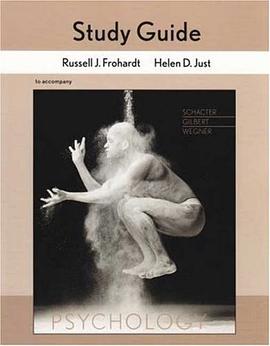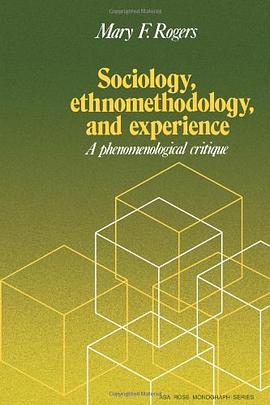

具体描述
A smart and funny book by a prominent Harvard psychologist, which uses groundbreaking research and (often hilarious) anecdotes to show us wh y we’re so lousy at predicting what will make us happy – and what we can do about it.
Most of us spend our lives steering ourselves toward the best of all possible futures, only to find that tomorrow rarely turns out as we had expected. Why? As Harvard psychologist Daniel Gilbert explains, when people try to imagine what the future will hold, they make some basic and consistent mistakes. Just as memory plays tricks on us when we try to look backward in time, so does imagination play tricks when we try to look forward.
Using cutting-edge research, much of it original, Gilbert shakes, cajoles, persuades, tricks and jokes us into accepting the fact that happiness is not really what or where we thought it was. Among the unexpected questions he poses: Why are conjoined twins no less happy than the general population? When you go out to eat, is it better to order your favourite dish every time, or to try something new? If Ingrid Bergman hadn’t gotten on the plane at the end of Casablanca, would she and Bogey have been better off?
Smart, witty, accessible and laugh-out-loud funny, Stumbling on Happiness brilliantly describes all that science has to tell us about the uniquely human ability to envision the future, and how likely we are to enjoy it when we get there.
作者简介
Daniel Gilbert is Harvard College Professor of Psychology at Harvard University. He has won numerous awards for his teaching and research, i ncluding the American Psychological Association's Distinguished Scientific Award for an Early Career Contribution to Psychology. His research has been covered by The New York Times Magazine, Forbes, Money, CNN, U.S. News & World Report, The New Yorker, The Wall Street Journal, Scientific American, Self, Men's Health, Redbook, Glamour, Psychology Today, and many others. His short stories have appeared in Amazing Stories and Asimov's Science Fiction Magazine, as well as other magazines and anthologies. He lives in Cambridge, Massachusetts.
目录信息
读后感
“因为爱著你的爱/因为梦著你的梦/所以悲伤著你的悲伤/幸福著你的幸福”,苏芮在《牵手》中颂唱着幸福,而那幸福的体验只属于你自己,与他人无关。 我们孤独在站立在蓝色的星球上,左顾右盼。残酷现实让我们无暇收集身边的风景,时常琢磨着无车无房、父母衰老、犬子年少,到哪...
评分刚刚通过TEDtoChina看到了哈佛心理学教授丹·吉尔伯特的TED演讲视频 ,演讲了讲述了关于“合成快乐”的一些有趣的结论: 人脑前额叶皮质具有一种“模拟”的能力,它能根据自己不管是遗传的还是后天获取的经验,来“模拟判断”即将发生的事情是带给自己正向的和负向的感觉,并...
评分看了半本书之后,发现封面封底上这些推荐人,大多都是吭爹啊。你们有真正看过书吗?哪怕看一下作者的序,应该也就不会写出这样的推荐语来吧?!真是不负责任瞎推荐! 中方出版社把书扣上"哈佛幸福课"的帽子,纯粹是为了营销吧。。 如果你期待在书中找到臻达幸福的妙方,那...
评分 评分“If anything can go wrong, it will.”Ever since a US Air Force engineer called Ed Murphy made this curse in 1949 when finding that every piece of a project was wired exactly the wrong way, adding new entries to this so-called Murphy’s Law has become a pop...
用户评价
不是个人喜欢的话题,可是幽默的笔触和深刻的见解,确实是一本不可多得的好书
评分人要先快乐 学习工作效率才高 = =
评分不是个人喜欢的话题,可是幽默的笔触和深刻的见解,确实是一本不可多得的好书
评分人要先快乐 学习工作效率才高 = =
评分不是个人喜欢的话题,可是幽默的笔触和深刻的见解,确实是一本不可多得的好书
相关图书
本站所有内容均为互联网搜索引擎提供的公开搜索信息,本站不存储任何数据与内容,任何内容与数据均与本站无关,如有需要请联系相关搜索引擎包括但不限于百度,google,bing,sogou 等
© 2026 book.quotespace.org All Rights Reserved. 小美书屋 版权所有




















